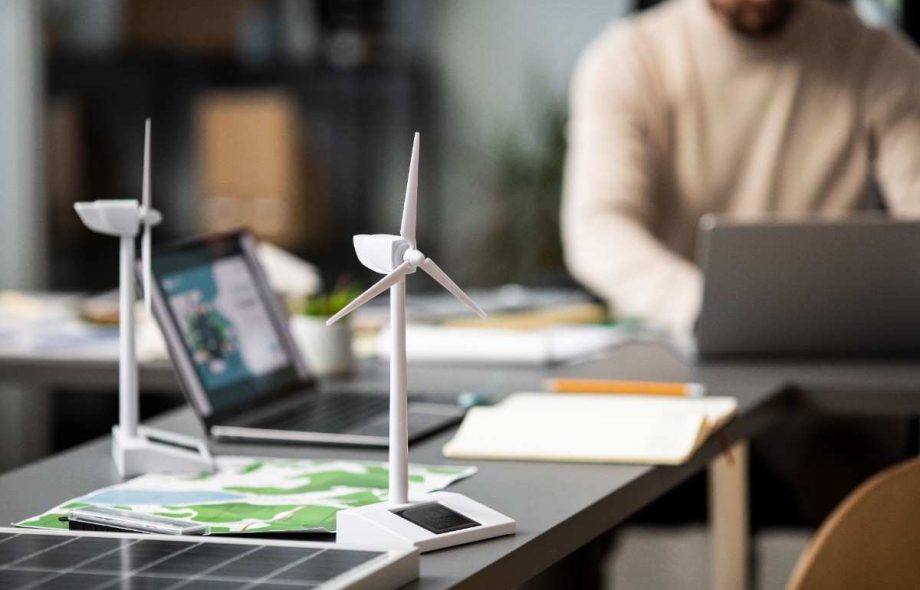What Is a Unified ERP System and How It Supports Renewable Energy Manufacturing
Without centralised systems, coordinating operations across sourcing, production, inventory, and compliance may become extremely complex in the renewable energy manufacturing sector. Manufacturers have a single source of truth thanks to a unified ERP system, which unifies several corporate operations onto a single platform. In addition to removing data silos, this makes it possible for divisions like manufacturing, logistics, quality assurance, and procurement to make decisions in real time. This degree of coordination is necessary for renewable energy companies that manufacture solar panels, wind turbines, or storage systems in order to remain flexible in a highly regulated and quickly changing sector.
Throughout the manufacturing lifecycle, uniformity, effectiveness, and traceability are ensured by implementing a single odoo ERP solution. With the help of a strong odoo implementation service, companies may completely adapt and set up their ERP system to meet the particular requirements of the renewable manufacturing industry. Whether it’s automating MRP, monitoring certifications, or handling intricate Bills of Materials, Odoo enables green firms to grow with assurance. Because of its modular design, producers may begin small and gradually increase functionality, guaranteeing a journey towards cost-effective digital transformation.
Core ERP Modules You Need for End-to-End Renewable Energy Production Management
Manufacturing (MRP): This module helps streamline the entire production process by automating work orders, tracking materials, and scheduling operations. It’s vital for handling complex renewable energy components like solar panels or wind blades, ensuring production meets both demand and quality standards.
Inventory Management: Odoo’s inventory module enables real-time tracking of raw materials, parts, and finished goods across multiple locations. It supports barcode scanning, lot/serial tracking, and just-in-time stock replenishment essential for maintaining lean and efficient green manufacturing processes.
Quality Management: This module ensures product consistency and compliance with green energy certifications. Quality checkpoints, testing procedures, and non-conformance tracking can be embedded at different stages of production helping meet international standards like ISO or energy-specific requirements.
Purchase Management: Automate vendor communications, manage supplier pricelists, and streamline the procurement cycle. This module is key for renewable manufacturers sourcing rare materials or managing global supplier networks, helping reduce delays and procurement costs.
Project Management: Track R&D and product innovation timelines efficiently. Renewable companies involved in custom solutions or project-based installations—like solar farms—can use this module to assign tasks, manage timelines, and monitor budgets in real-time.
Accounting & Finance: Maintain accurate records of all financial transactions, including project billing, tax compliance, and expense tracking. For companies dealing with grants, carbon credit trading, or complex contracts, this module ensures transparent financial governance.
Key Manufacturing Challenges in the Renewable Sector and How ERP Solves Them
Complex Supply Chains: Renewable manufacturers often source parts globally, increasing logistics challenges. ERP integrates supply chain data and automates procurement, reducing lead times and ensuring continuity in production.
Stringent Compliance Requirements: Adhering to energy standards and certifications is critical. ERP systems track documentation, schedule audits, and automate compliance workflows, reducing the risk of non-compliance.
High Production Costs: From advanced materials to custom equipment, costs can soar. An ERP solution provides real-time cost analysis, resource optimization, and predictive planning to reduce waste and improve margins.
Inventory Overload or Shortage: Manual tracking leads to overstock or stockouts. With ERP, businesses get live inventory updates, reorder alerts, and just-in-time stock management to maintain balance.
Lack of Real-Time Visibility: Disparate systems can cause data delays. ERP provides dashboards, KPIs, and reporting tools for immediate visibility into operations, helping faster decision-making.
Scattered Data Across Departments: Disjointed data impacts coordination. ERP centralizes data from sales, engineering, and production streamlining collaboration and accelerating product delivery timelines.
Why Renewable Energy Manufacturers Are Turning Toward ERP for Operational Efficiency
Real-Time Data Insights: ERP platforms like Odoo offer dashboards and reports that give instant access to production metrics, financial summaries, and supply chain statuses—enabling quick, data-driven decisions.
Increased Automation: By automating routine tasks—such as procurement, invoicing, or scheduling renewable manufacturers free up human resources for innovation and critical thinking.
Scalable Architecture: ERP systems grow with your business. As renewable energy demand increases, manufacturers can expand modules without disrupting existing operations.
Enhanced Customer Satisfaction: By ensuring timely delivery, consistent product quality, and accurate communication, ERP helps companies improve their customer relationships and service reliability.
Integration with IoT and Smart Systems: Many ERP systems can connect with IoT-enabled machines and sensors. This allows predictive maintenance, remote monitoring, and smarter energy consumption.
Cost Optimization: From lean manufacturing practices to better vendor negotiations, ERP systems help reduce operational and administrative costs while maximizing ROI.
Choosing the Right Odoo Implementation Partner to Future-Proof Your Green Tech Operations
As crucial to your Odoo journey as the software itself is choosing the right partner. Your ERP implementation partner should be aware of the technical intricacies of the renewable energy sector as well as the sustainability objectives that motivate your business. An excellent partner will assist you in mapping your current processes, locating bottlenecks, and tailoring modules to your renewable production processes, including storage, wind, solar, and hydro.
Working with a firm that specialises in odoo implementation service guarantees that your company will take use of this flexible ERP platform to its fullest. The correct partner will lead your team through each stage of design, development, training, and support from facilitating traceability in your supply chain to facilitating smooth connection with IoT devices. It takes more than simple software to future-proof your green tech operations; you also need to match your digital foundation with long-term growth and sustainability plans. If you make the right decision, Odoo will be the foundation of your astute, environmentally responsible manufacturing company.
 :
https://in.pinterest.com/bizoplesolutions
:
https://in.pinterest.com/bizoplesolutions

